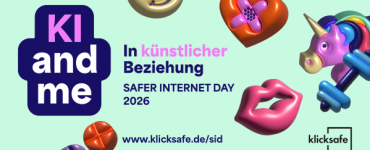-
Barometer Network Policy: Majority of the Digital Agenda implemented, many goals not yet achieved
-
Network Policy Forum on 5 September takes a look at Digital Agenda 2017-2021
-
New Online Tool: Wahl/Digital Check 2017
The German federal government has, in conjunction with their Digital Agenda 2014-2017, made clear progress in the last few years in all areas of action in Internet policy, but at the same time, there are many areas whether there is still need for action. Above all, the Internet policy goals for the coming legislative term must be formulated considerably more ambitiously. This is the finding of eco – Association of the Internet Industry in its stock-taking of the three years of the federal government’s Digital Agenda 2014-2017.
In order to jointly formulate not only the forthcoming requirements but also the vision for a future-proof Internet policy in Germany, eco invites interested participants to a dialog between industry and politics on the occasion of the Network Policy Forum on 5 September 2017. Contributions from Federal Chancellery Minister Peter Altmaier and Head of Microsoft Deutschland, Sabine Bendiek, await guests, along with forward-looking discussions with many other renowned guests from politics and industry, such as the Federal Economics Minister Brigitte Zypries and Leader of the FDP, Christian Lindner, about the vision and the requirements of the Digital Agenda 2017-2021.
eco now also offers a new online tool for the Network Policy Party Check and would like in this way to highlight the relevance of this topic for the coming legislative term, during the current lead-up to the German federal election. With the Wahl/Digital Check 2017, all voters have the possibility to take a critical look at the statements of the four parties represented in the federal parliament on the range of topics involved in Internet policy.
“The Digital Agenda 2014-2017 was the first important step in the direction of a strategic digital policy in Germany, and the federal government in this context has charted the right course in many things over the last three years,” says eco Director of Policy & Law Oliver Süme. “At the same time, however, we also expect the next federal government to do more in the further formulation of objectives, and to seek greater dialog with the affected parties in regulatory forays, in order to formulate a unified Europe-wide regulation which will ultimately advance Germany as a digital location, rather than inhibiting innovation. In many areas, Germany is simply not in the position that, in the eyes of the Internet industry, it should be.”
Süme sees the biggest and most urgent need for political action to be in the area of broadband expansion and the roll-out of a gigabit-capable infrastructure, as well as in the area of digital education and professional development as a guarantee of competent users in a smart world, and to ensure a new generation of future IT specialists.
Network Policy Forum on 5 September 2017 to look at the Digital Agenda 2017-2021
As previously, there are many Internet policy areas with urgent need for action and reform. In the coming legislative period it will be even more important to implement a modern Internet policy decisively and stringently. Only a few weeks out from the German federal election in September, the following questions therefore arise: What is Germany’s status shortly before the federal election 2017 in the area of digitalization, and what network policy objectives are the different parties sticking to for the coming legislative term? These questions will form the center point of the Network Policy Forum Wahl/Digital 2017 that eco is organizing on 5 September on the topic of the Digital Agenda 2017 – 2021 – Network Policy Vision and Requirements. The association will also, among other things, present the results of its Network Policy Party Check, which took place in the context of four events with Internet policy makers from the parties represented in the current federal parliament, between March and June 2017. Alongside Federal Economics Minister Brigitte Zypries and FDP Leader Christian Lindner, many renowned guests from politics and industry are expected.
New Online Tool: Wahl/Digital Check 2017
Today, the eco Wahl/Digital Check 2017 goes online (German-language). The online tool offers users the possibility – similar to the existing Wahlomat from the Federal Agency for Civic Education – to compare their Internet policy position with those of the parties currently represented in federal parliament.
eco requested, in the context of the event series Network Policy Party Check from March until June 2017, the positioning of a total of 13 Internet policy-makers from the four parliamentary parties on five focal areas of the Digital Agenda. This positioning forms the basis of the Wahl/Digital Check. The Wahl/Digital Check is not a recommendation for voting preferences, but rather provides information on Internet policy and on the German federal election.




